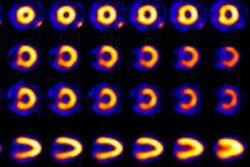Cardinal Health has agreed to pay $26.8 million as part of a settlement to resolve monopoly charges brought by the U.S. Federal Trade Commission (FTC).
According to the FTC, Cardinal Health illegally monopolized 25 markets in the sale and distribution of radiopharmaceuticals and forced hospitals and clinics to pay inflated prices for these drugs.
The settlement also prohibits the company from entering into exclusive deals with manufacturers that market the same radiopharmaceuticals, or from using "coercion or retaliation to obtain de facto exclusivity."
In addition, the company must notify the FTC before entering into any new exclusive distribution agreements or buying radiopharmacy assets that normally would not be subject to antitrust notification requirements.
The FTC complaint covers the time between 2003 and 2008, when GE Healthcare and Bristol-Myers Squibb (BMS) were the only U.S. manufacturers of heart perfusion agents.
During those years, a radiopharmacy could not profitably enter a new market and compete without obtaining the right to distribute either BMS' Cardiolite or GE's Myoview, the FTC asserted.
According to the agency, Cardinal Health's anticompetitive actions included the following:
- Canceling and threatening to cancel current or future purchases of radiopharmaceutical products from GE and BMS
- Threatening to switch and switching customers from BMS' Cardiolite to GE's Myoview in some markets to pressure BMS to abandon plans to license Cardiolite to new competitors
- Threatening to compete and offering to forego competing against BMS as a generic heart perfusion agent manufacturer
- Basing its future relationship with GE in the radiopharmaceutical industry on GE's refusal to grant Myoview distribution rights to new competitors in certain markets
The amount is the second-largest monetary settlement the FTC has obtained in an antitrust case. The money will be deposited into a fund for distribution to affected customers.
In 2008, GE and Cardinal signed an agreement granting Cardinal the right to purchase Myoview for all of its radiopharmacies in the U.S. The relationship sparked a lawsuit in 2012 by at least one radiopharmacy, PharmaRx Pharmaceuticals, which alleged that it and other nuclear pharmacies had been denied the right to purchase Myoview in certain sales territories and/or denied the right to purchase other products from GE, as a result of its tying those products to purchases of Myoview.




















